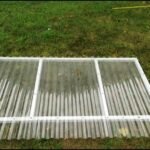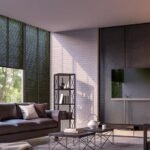Decking Alternatives to Wood: Top Picks for Your Outdoor Space

When it comes to designing an outdoor space, the choice of decking material plays a pivotal role in both aesthetics and functionality. Traditionally, wood has been the go-to option for its natural beauty and classic appeal. However, wood decking requires regular maintenance, including staining, sealing, and repairing, to keep it looking good and safe to use. As homeowners seek more durable, low-maintenance options, decking alternatives to wood have gained popularity, offering a variety of materials that can withstand the elements, require minimal upkeep, and still enhance the outdoor living experience. This article explores the top picks for decking alternatives to wood, helping you make an informed decision for your outdoor space.
- Introduction to Non-Wood Decking Options
- Composite Decking: A Durable and Low-Maintenance Choice
- PVC Decking: Lightweight and Weather-Resistant
- Aluminum Decking: Long-Lasting and Cool Underfoot
- Bamboo Decking: Eco-Friendly and Strong
- Rubber Paver Tiles: Safe and Comfortable
- Interlocking Deck Tiles: Easy Installation for a Quick Update
- Conclusion: Choosing the Right Decking Material for Your Needs
Introduction to Non-Wood Decking Options
The quest for decking alternatives to wood has led to the development of several innovative materials that mimic the look of wood while eliminating many of its drawbacks. These alternatives are designed to be durable, resistant to rot, insects, and weather, and require minimal maintenance. They come in a variety of colors, textures, and finishes, allowing homeowners to customize their outdoor spaces to their liking. The most popular decking alternatives to wood include composite decking, PVC decking, aluminum decking, bamboo decking, rubber paver tiles, and interlocking deck tiles. Each material offers unique benefits, catering to different preferences and needs.
Composite Decking: A Durable and Low-Maintenance Choice
Composite decking is one of the most popular decking alternatives to wood on the market. It is made from a blend of wood fibers and recycled plastics, making it an eco-friendly choice. Composite decking is known for its durability, resisting rot, insects, and weathering without the need for staining, sealing, or painting. It comes in a variety of colors and textures that closely mimic the look of natural wood. While the initial cost of composite decking can be higher than traditional wood, its low maintenance requirements and long lifespan make it a cost-effective option in the long run.
PVC Decking: Lightweight and Weather-Resistant
PVC decking is another excellent decking alternative to wood, made entirely from polyvinyl chloride. This material is lightweight, yet strong and durable. It is highly resistant to moisture, making it an ideal choice for areas with high humidity or close to water bodies. PVC decking does not contain any wood fibers, which means it does not suffer from the common issues of rotting, splintering, or insect damage. Available in a range of colors and styles, PVC decking can mimic the look of natural wood or offer a completely unique aesthetic. Its maintenance is as simple as occasional washing with soap and water.
Aluminum Decking: Long-Lasting and Cool Underfoot
For a truly durable and long-lasting decking alternative to wood, aluminum decking is hard to beat. It is impervious to rot, insects, and weathering, and it does not warp or splinter. Aluminum decking is also fire-resistant, making it a safe choice for regions prone to wildfires. One of the unique benefits of aluminum decking is its ability to stay cool underfoot, even in direct sunlight, thanks to its heat-dissipative properties. It offers a sleek, modern look and is available in various colors and finishes. While the upfront cost can be higher, aluminum decking's longevity and minimal maintenance needs provide value over time.
Bamboo Decking: Eco-Friendly and Strong
Bamboo decking is a sustainable and strong decking alternative to wood that has been gaining popularity among eco-conscious homeowners. Made from rapidly renewable bamboo, it offers a similar look and feel to traditional hardwood decking but with greater environmental benefits. Bamboo is naturally resistant to moisture, insects, and decay, making it a durable option for outdoor use. It requires minimal maintenance, usually just regular cleaning and occasional sealing to maintain its appearance. Bamboo decking is available in a variety of colors and styles, providing a beautiful and eco-friendly option for your outdoor space.
Rubber Paver Tiles: Safe and Comfortable
Rubber paver tiles present a unique and practical decking alternative to wood for areas requiring safety and comfort. Made from recycled rubber, these tiles are soft underfoot, making them ideal for play areas, pool surrounds, and patios. They are slip-resistant, even when wet, and provide excellent shock absorption, reducing the risk of injuries from falls. Rubber paver tiles are durable, weather-resistant, and easy to install and maintain. They come in various colors and patterns, allowing for creative and customizable designs in your outdoor space.
Interlocking Deck Tiles: Easy Installation for a Quick Update
For homeowners looking for a quick and easy update to their outdoor space, interlocking deck tiles are an attractive decking alternative to wood. These tiles can be made from various materials, including composite, wood, stone, and rubber, and are designed to snap together over any hard surface. Installation does not require any tools, making it a simple DIY project that can transform the look of your patio, balcony, or rooftop deck in just a few hours. Interlocking deck tiles are available in a wide range of colors, patterns, and textures, offering flexibility in design and the ability to easily change the look in the future.
Conclusion: Choosing the Right Decking Material for Your Needs
When it comes to selecting the right decking alternatives to wood for your outdoor space, there are several factors to consider, including durability, maintenance, aesthetics, and cost. Each material offers unique advantages and may be better suited to specific needs and environments. Composite and PVC decking provide a balance of durability and low maintenance, while aluminum decking offers unmatched longevity. Bamboo decking is an eco-friendly choice, rubber paver tiles prioritize safety and comfort, and interlocking deck tiles offer ease of installation and versatility. By weighing these factors against your personal preferences and requirements, you can choose the decking alternative to wood that best fits your outdoor living space, ensuring years of enjoyment and minimal upkeep.




Leave a Reply